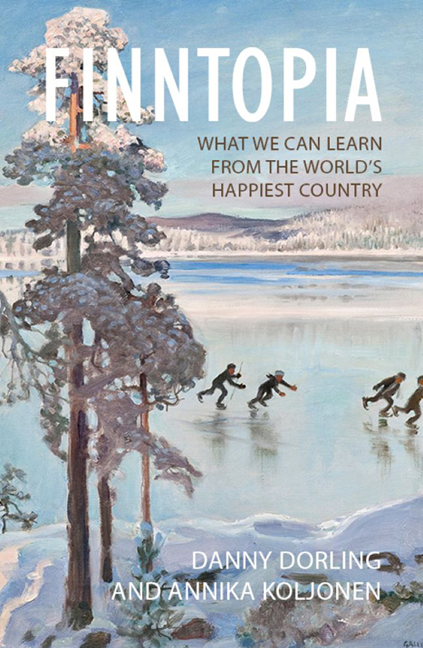3 - Economy and welfare
Published online by Cambridge University Press: 20 December 2023
Summary
“The idea that a contemporary Nordic society is anything like socialism is absurd. Over the past 70 years what the experience of the Nordic nations actually suggests is that even the United States, with its already very impressive commitments to freedom, might actually be able to learn a few things from us about freedom and free-market capitalism.”
Anu Partanen (2018) – author of The Nordic Theory of Everything: In Search of a Better Life.Challenger ecosystem
In 2020 Finland is performing remarkably well in numerous global economic and social rankings and has been for some time. Two years earlier, the World Economic Forum's Global Competitiveness Report (World Economic Forum 2018) ranked Finland eleventh in competitiveness, and first for the soundness of its banks. In 2019 the World Economic Forum named Greater Helsinki as one of its 12 “Challenger Ecosystems”, cities close behind the top ten globally leading start-up hubs (Penzel 2019). Finland is also ranked as the most politically stable country in the world, with some of the highest levels of press freedom, and has been proclaimed the happiest place to live (see Parkkinen 2019). In many ways it has achieved what many idealists in the past dreamt of – the winning of freedoms – rather than merely a superficial commitment to the idea of freedom.
Statistics released shortly after the turn of the century led the United Nations to rank Finland as the thirteenth most developed country in the world in its Human Development Report of 2004, twelfth by 2009 and twelfth again by 2019. At the time, few people noticed how quickly it had risen up the ranks, not least because its Nordic neighbours, Norway and Sweden, overshadowed it in their even more rapid rise. However, what is remarkable about Finland is that it has achieved this without the oil advantages of Norway or the historic imperial advantages of Sweden.
Instead, Finland made use of what it had – forests. The forest industry provided material for exports that supported its economic growth throughout the twentieth century when demand was high (Poropudas 1996: 352). Instead of an important land-owning aristocracy or gentry Finland had a significant class of peasant proprietors, or talonpojat (Hakkinen & Forsberg 2015: 101).
- Type
- Chapter
- Information
- FinntopiaWhat We Can Learn from the World's Happiest Country, pp. 45 - 70Publisher: Agenda PublishingPrint publication year: 2020



